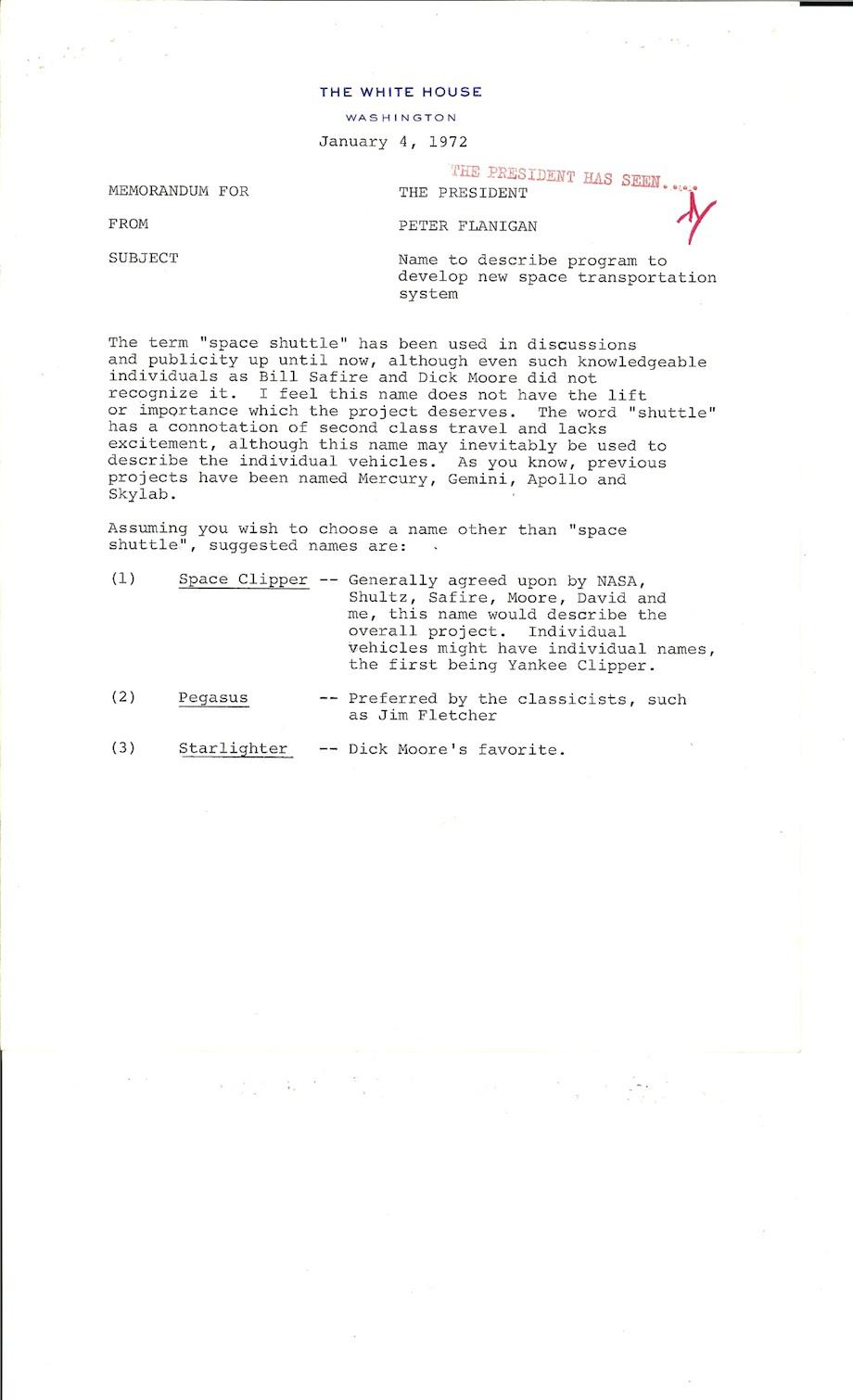The Vault is Slate’s brand-new history blog. Like us on Facebook, and follow us on Twitter @slatevault. Find out more about what this space is all about here. In this memo from aide Peter Flanigan to President Nixon, dated January 4, 1972, Flanigan made a last-ditch effort to convince the president to stop using the term space shuttle when referring to NASA’s new space exploration vessel. “The word shuttle has a connotation of second class travel and lacks excitement,” Flanigan wrote. Flanigan offered a list of classier alternatives: “Space Clipper”, “Pegasus”, and “Starlighter.”
In a memo he sent to Flanigan on the same day, Nixon’s speechwriter William Safire argued for “Space Clipper,” pointing to the “patriotic and historic associations” with the super-fast mid-19th-century Yankee Clipper ships. “The name would be criticized as nationalistic,” he said, “but I think that heat would be good.” Safire voted against “Pegasus,” which Flanigan told the President was “preferred by the classicists,” because he anticipated that the shuttle would “soon be named Peggy and parodied with the old song title ‘Peg of My Heart.’”
As we know, none of these suggestions gained traction; the day after these memos were sent, Nixon issued a statement announcing his decision to proceed with the space shuttle program, emphasizing the program’s goals of “transforming the space frontier…into familiar territory, easily accessible for human endeavor.”

Memo; Peter Flanigan; 4 January 1972; Box 9; White House Central Files: Subject Files - Outer Space (OS); Richard Nixon Presidential Library and Museum, Yorba Linda, California.
Thanks to Olivia Anastasiadis and Gregory Cumming of the Richard Nixon Presidential Library and Museum.